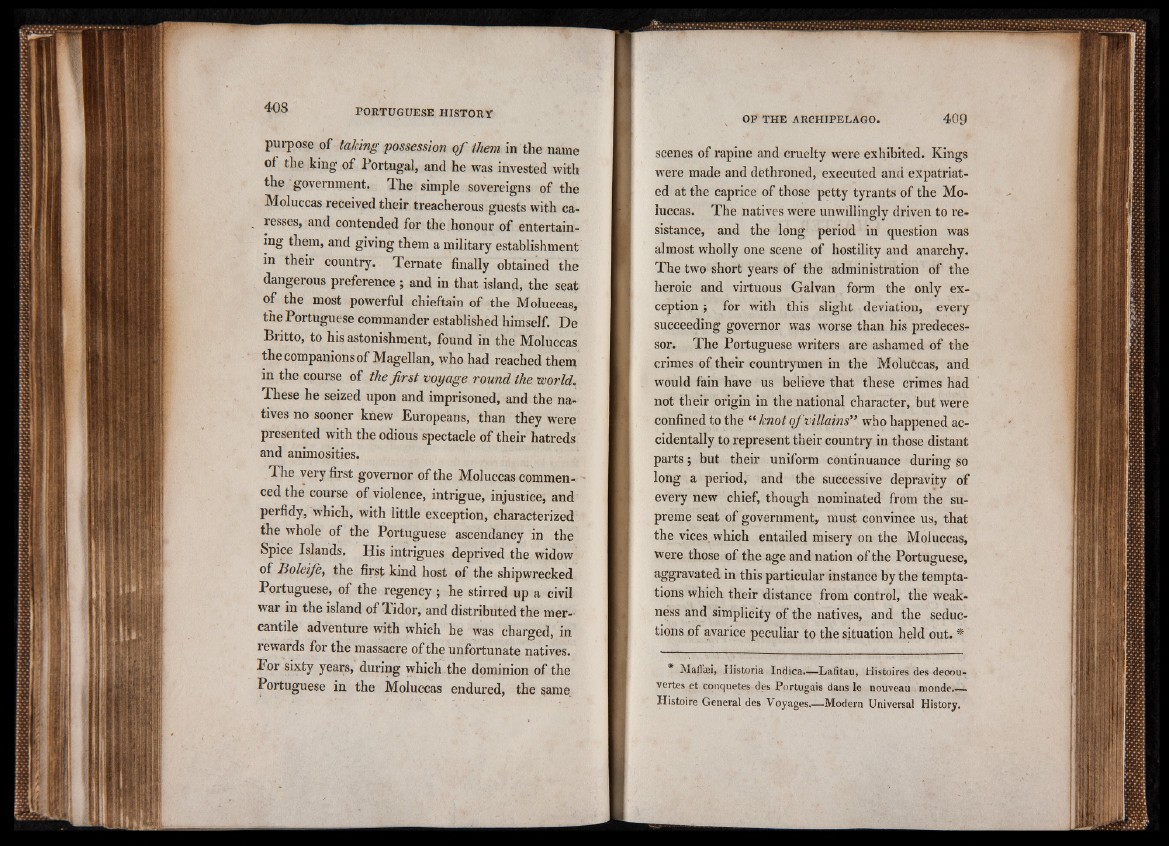
purpose of taking possession of them in the name
of the king of Portugal, and he was invested with
the government. 1 he simple sovereigns of the
Moluccas received their treacherous guests with caresses,
and contended for the honour of entertaining
them, and giving them a military establishment
in their country. Ternate finally obtained the
dangerous preference ; and in that island, the seat
of the most powerful chieftain of the Moluccas,
the Portuguese commander established himself. De
Bntto, to his astonishment, found in the Moluccas
the companions of Magellan, who had reached them
in the course of the first voyage round the world.
These he seized upon and imprisoned, and the natives
no sooner knew Europeans, than they were
presented with the odious spectacle of their hatreds
and animosities.
The veiy first governor of the Moluccas commen- •
ced the course of violence, intrigue, injustice, and
perfidy, which, with little exception, characterized
the whole of the Portuguese ascendancy in the
Spice Islands, His intrigues deprived the widow
of Boleife, the first kind host of the shipwrecked
Portuguese, of the regency ; he stirred up a civil
war in the island of Tidor, and distributed the mercantile
adventure with which he was charged, in
rewards for the massacre of the unfortunate natives.
For sixty years, during which the dominion of the
Portuguese in the Moluccas endured, the same
scenes of rapine and cruelty were exhibited. Kings
were made and dethroned, executed and expatriated
at the caprice of those petty tyrants of the Moluccas.
The natives were unwillingly driven to resistance,
and the long period in question was
almost wholly one scene of hostility and anarchy.
The two short years of the administration of the
heroic and virtuous Galvan form the only exception
; for with this slight deviation, every
succeeding governor was worse than his predecessor.
The Portuguese writers are ashamed of the
crimes of their countrymen in the Moluccas, and
would fain have us believe that these crimes had
not their origin in the national character, but were
confined to the “knot of villains” who happened accidentally
to represent their country in those distant
parts; but their uniform continuance during .so
long a period, and the successive depravity of
every new chief, though nominated from the supreme
seat of government, must convince us, that
the vices, which entailed misery on the Moluccas,
were those of the age and nation of the Portuguese,
aggravated in this particular instance by the temptations
which their distance from control, the weakness
and simplicity of the natives, and the seductions
of avarice peculiar to the situation held out. *
* Maffaei, Historia Indica.—Lafitau, Histoires des deoou-
vertes et conquetes des Portugais dans le nouveau monde.—
Histoire General des Voyages.—Modern Universal History.